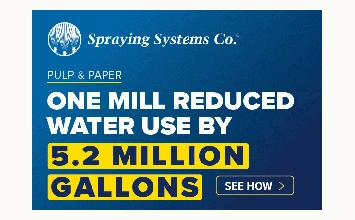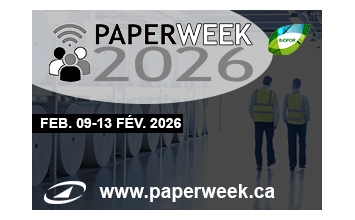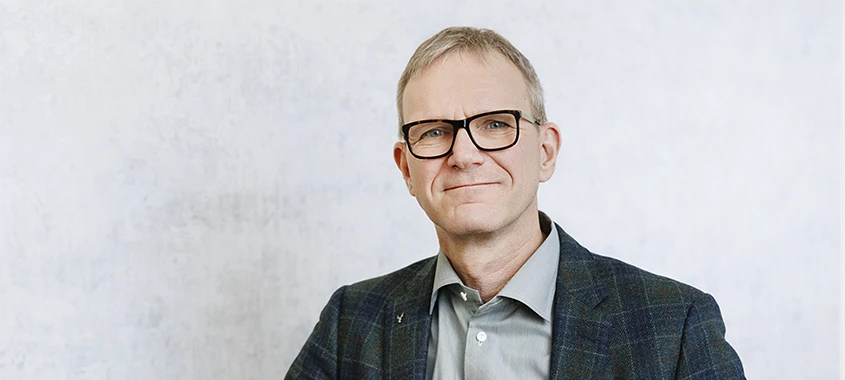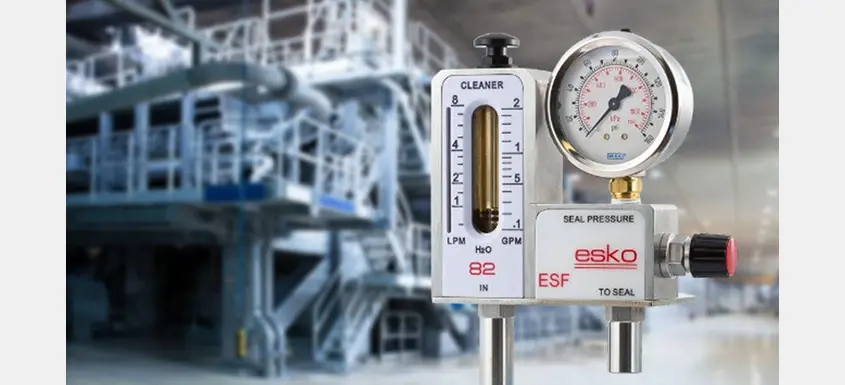Securing performance in a turbulent global trade environment
Q2 2025 highlights
- Sales totaled €2,400 million (2,546 million in Q2 2024)
- Comparable EBIT decreased by 31% to €126 million, 5.2% of sales (182 million, 7.2%)
- Operating cash flow was €179 million (204 million)
- Increased global trade tensions impacted deliveries and sales prices for UPM Fibres and UPM Communication Papers
- Advanced materials businesses' performance was more resilient, measures to improve profitability continued
- UPM Biofuels had record high deliveries and improved its performance
- UPM discontinued the development of the potential refinery in Rotterdam to sharpen the focus in biofuels growth strategy
- The biochemicals refinery in Leuna started up the first of its three core processes
H1 2025 highlights
- Sales totaled €5,046 million (5,186 million in H1 2024)
- Comparable EBIT decreased by 20% to €413 million, 8.2 % of sales (515 million, 9.9 %)
- Operating cash flow was €468 million (539 million)
- Net debt was €3,310 million at the end of June (2,763 million)
- UPM commenced a share buy-back program and repurchased 6 million shares for a total of approximately €160 million
- UPM was listed as the only forest and paper industry company in the Dow Jones Global and European Sustainability Indices (DJSI) for the years 2024–2025
- UPM was recognized among the top sustainability performers by CDP and S&P Global
Massimo Reynaudo, President and CEO, comments on the results:
“The promising start to the year took a negative turn during the second quarter. Tariff announcements caused uncertainty in global trade, which weakened demand and the U.S. dollar. These had a negative impact particularly on the pulp and communication paper businesses. Our advanced materials businesses showed more resilience. To secure performance, we took further actions to safeguard the competitiveness of all our businesses. On a high note, we made good progress in the biochemicals refinery in Leuna, successfully starting up first of the refinery’s three core processes.
In Q2, our sales were €2,400 million, down from the preceding quarter as well as from Q2 2024. Comparable EBIT was €126 million, down 31% from last year’s corresponding quarter. Operating cash flow was €179 million. Our financial position remains solid, with net debt to EBITDA ratio of 2.12 at the end of June.
UPM Fibres was indirectly impacted by the escalating trade tensions. In China, orders halted during the height of the trade tensions between the U.S. and China. Customer deliveries recovered later in the quarter, but at lower price levels. Our delivery volumes were also affected by the maintenance shutdowns at UPM Paso de los Toros and UPM Kymi.
Despite the weakened dollar, we still managed to run our Finnish pulp operations profitably. Due to the continued, unsustainably high wood prices, the scheduled shutdown of the Kaukas pulp mill in Q3 will be extended to approximately two months. We will continue to monitor the situation closely and take further curtailments at our Finnish pulp mills as needed.
In UPM Communication Papers, demand was weak, prices decreased, and currency rates developed unfavorably. Trade uncertainties significantly affected demand from the U.S. customers.
The business continues to align its paper capacity with profitable demand to ensure operational competitiveness and performance. In the first quarter, we announced the planned closure of the UPM Ettringen mill in Germany. Today, we have announced plans to permanently end paper production at UPM Kaukas. Together, these two closures would reduce paper capacity by 570,000 tonnes, representing 13% of our capacity. With these planned measures we aim to ensure the efficient use of our paper assets.
In our advanced materials business, UPM Adhesive Materials showed resilience and continued to grow sales. Actions to sharpen competitiveness and improve margins continued. The business is taking steps towards strengthening its presence in faster growing regions. We are investing in our production unit in Malaysia to strengthen our asset platform in Southeast Asia. In the U.S. we will increase the capacity for high-value advanced label materials. This will enable us to increase our share of this growing market and bring advanced label production closer to the customers in the Americas.
UPM Specialty Papers navigated a market affected by the uncertainty around tariffs. Growth in the label, release base and packaging papers markets softened in the U.S. toward the end of the quarter. Demand for fine papers in China was sluggish, prices were low, and the business took efficiency measures to improve its competitiveness in these markets.
UPM Plywood saw positive development in its markets but was not able to capture the opportunities due to the prolonged strike at the Finnish mills. After the new collective labor agreement was signed, production volumes quickly picked up, supported by a high backlog of orders.
In decarbonization solutions, UPM Biofuels improved its performance after several challenging quarters with higher deliveries and decreasing costs. Despite the low market prices of advanced renewable fuels, the business reached break-even performance. During the quarter we decided to discontinue the development of the potential second biomass-to-fuels refinery in Rotterdam. We focus our growth strategy in biofuels on further development of the Lappeenranta refinery, advancing proprietary feedstock technologies and by qualifying and commercializing Crude Tall Oil -derived biofuels for jet engine fuels.
In Leuna, Germany, we made good progress toward completing the first-of-its-kind refinery and launching our biochemicals business commercially. The first of the refinery’s three core processes, the hydrothermal breakdown of solid biomass, has been successfully tested and started up. This is key to enabling the refinery's further conversion processes to renewable chemicals and materials. We expect the entire integrated process of the refinery to start by end of the year.
UPM Energy experienced a quarter of historically low prices. Coming to the seasonally slow quarter, hydrological reservoirs were high in the Nordics. At the same time, the second quarter showed increased power demand in Finland, as an indication of the electrification of the economy starting to gain traction.
In the uncertain markets, we remain focused on executing our strategy and securing performance. We continue to leverage our world-class fibre platform in Uruguay and will take all means necessary to safeguard profitability in the Finnish pulp operations. In advanced materials, we continue to sharpen our competitiveness and capture appropriate growth opportunities. In decarbonization solutions, we are launching an exciting new biochemicals business.”






















































